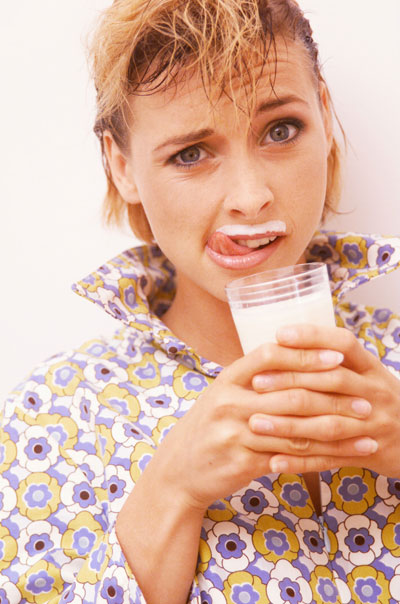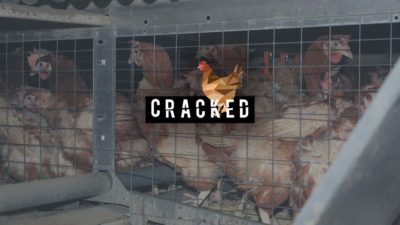BBC Milking the Truth

It was more like an infomercial; an advertising film promoting cow’s milk in a supposedly objective style. Unfortunately the programme was misleading and riddled with factual errors and poor advice. They set out to dispel myths and clear confusion. Sadly they just muddied the water further; Gloria Hunniford kept referring to milk as completely natural – has she ever been in a modern, intensive dairy farm? And since when has feeding a human the milk of another mammal been ‘natural’? She acknowledged that milk is different now to when she was a girl but failed to point out that these days most cows are pregnant when milked and so milk is full of hormones (oestrogens) linked to a range of health problems from acne to breast cancer…
She said milk is considered essential for everyone – from the cradle to the grave – overlooking the fact that 75% of the world’s population that don’t drink it – they couldn’t if they wanted to as they are lactose intolerant and cannot digest the sugar in milk.
She waved an article from the Independent about in front of the camera saying there had been reports about the ‘apparent’ dangers of milk and said all the experts they had spoken to have dismissed the headlines based on one small piece of research… The study in question (peer-reviewed and published in the British Medical Journal), analysed data from over 100,000 Swedish adults over 20 years. They found that high milk intake was associated with higher risk of early death and with higher incidence of bone fracture in women.
This study is not alone in revealing how cow’s milk may in fact do more harm than good. Another large-scale study from the US looking at over 96,000 adults over 22 years found no association between teenage milk consumption and hip fracture in women whilst for men, fracture risk for high milk consumers was actually higher!
Other studies show the wide-ranging detrimental health effects of milk, not least the links with acne, allergies, arthritis, some cancers (breast and prostate), colic, constipation, coronary heart disease, Crohn’s disease, diabetes, dementia, ear infection, food poisoning, gallstones, kidney disease, migraine, autoimmune conditions, including multiple sclerosis, overweight, obesity and osteoporosis. Read the evidence for yourself here!
Interestingly, the public interviewed in the street on why they choose soya and almond milk over cow’s milk said it is lower in fat, lowers cholesterol, contains less calories and is better for you. It seems we are becoming better at discerning the facts for ourselves despite the BBC’s spectacular failure to investigate the real facts objectively.
When a school kid said that milk makes you stronger and healthier Gloria piped up “She’s right of course!” The entire piece was scattered with unfounded, biased comments based on outdated notions.
But it wasn’t just that the programme over-egged the supposed benefits of milk while dismissing the harmful effects – they misrepresented the science on soya and gave misleading advice designed to warn people off. They said too much soya could be toxic for people with thyroid problems – what the research actually shows is that soya does not cause problems in people with thyroid problems who are otherwise healthy and getting enough iodine in their diet. See more soya myth-busting here.
Interestingly Linia Patel, the nutritionist wheeled in to provide nutritional credibility to the magical elixir that is cow’s milk refused to say that it was in fact better than plant milks – Gloria was clearly frustrated “Linia is not so quick to crown a winner”. Well good for Linia, sticking to the principle that nutritional advice should be evidence-based not relying on outdated notions that the milk from another (usually pregnant) species is natural or healthy – it is neither. Catch up BBC!




